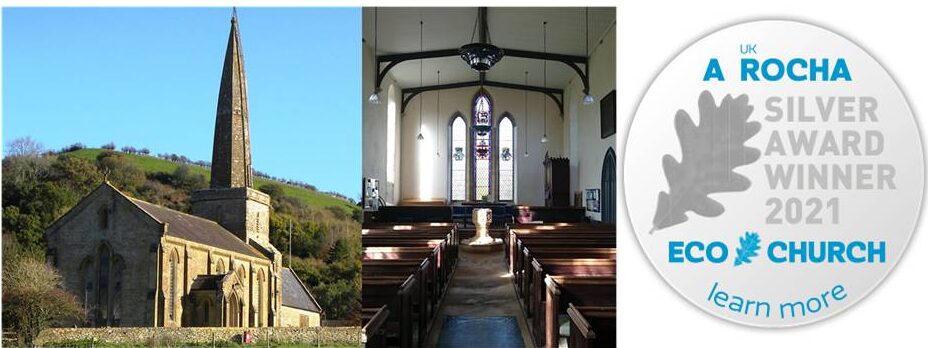St Peter and St Paul Church in Chiselborough recently won a Silver Eco Church Award. They are one of a group of parishes in the Ham Hill Benefice which were recently granted the A Rocha award. The process for many church communities may seem daunting, many feel it may create an awful lot of extra work for people who already work very hard, but here, Commander Dick O'Neil, who is a Churchwarden at Chiselborough shares their journey and explains that often churches are further down the road towards an eco church award than they realise.
How did you get started?
We got a team together; Revd Annie Gurner, a lady from the Somerset Wildlife Trust team who lives in the village and me. We went through the forms to see just where we stood and what was viable and reasonable over time.
We’ve been talking about being an Eco church for a long time. A lot of the work we’ve done in the church yard has been eco friendly for many years, but we needed to go through the form to see what was involved, what we’d been doing, what we needed to do and work out where we’d be.
Did you find the process difficult?
Some of the questions were somewhat obscure, such as do you have people coming to talk about environmental things; frequently, once a year, not at all, that sort of thing. Initially you think ‘no we don’t’, and then you start to think, ‘oh we do, we had a sermon on that three months ago, or we’ve done a service around that topic’ that sort of thing. I think in the normal course of things you probably cover far more than you believe you have when you start reading through the questions.
What surprised you about the process?
What surprised us more than anything is how far down the line we actually were. We just went through each question and thought about each one and at the end we suddenly realised we were much further down the line than we expected to be.
Was it difficult to identify and put in to place the things that needed doing?
A lot of things we’ve yet to implement in full. We basically highlighted first of all, the areas where we could improve. They are everything from putting up more bird and dormouse boxes, to setting off more of the church yard for wildlife, but they are all pretty straight forward things. Then I brought it to the PCC and we discussed it alongside other things such as the lighting.
It is all a progressive thing, for example the lighting; it’s not as though you have to change every bulb tomorrow, just throwing away a lot of bulbs would be very non eco-friendly, but having a policy means that whenever we need to change the lightbulbs we now use an eco-friendly one. That meant the cost wasn’t prohibitive and there was a strategy towards the achievement.
Was it hard to get everyone in the church community on board?
No because there isn’t that much involved that takes a lot of time and energy. It’s generally just looking at the church yard. In some respects it has saved us money and time. For example, we did have a narrow strip of land which we didn’t mow, now we are going to make that wider so that should save time and energy. Okay we are going to plant various trees and plants on the edge of the church yard but that’s no big deal. There was nothing that was going to take a lot of time and effort.
Was there anything that surprised you about the process?
They were small things really. We hadn’t thought about hedgehog boxes or dormouse boxes, they hadn’t even crossed my mind, but they are all easy things to do and hopefully it’s something which allows us to get the whole village community involved. They've already started helping us make them and to pay for them, and people have been donating them.
What happens now?
We will get everything we’ve promised to do in place. Then once we are fully satisfied that we’ve achieved everything that we’ve said we’re going to do, we’ll think about the next stage.
How would you encourage others to start the process?
When we talked about doing it, I did think, ‘oh no not another chore, something else to take up more time that I haven’t got’, but when we sat down and talked it through and went through the form it wasn’t as difficult as I’d thought. One thing I’d recommend is that the team come together to fill out the form rather than one person because it’s the breadth of knowledge that’s needed. When you think, ‘oh we haven’t done that', someone else will say, ‘well we have actually, we do it this way’.
